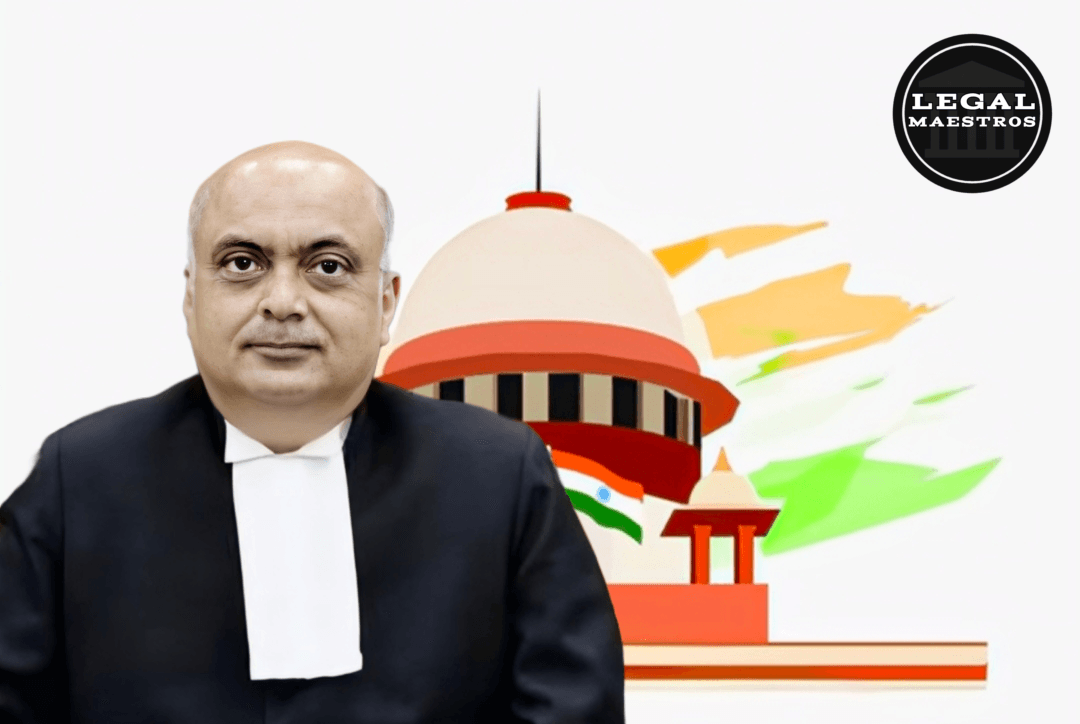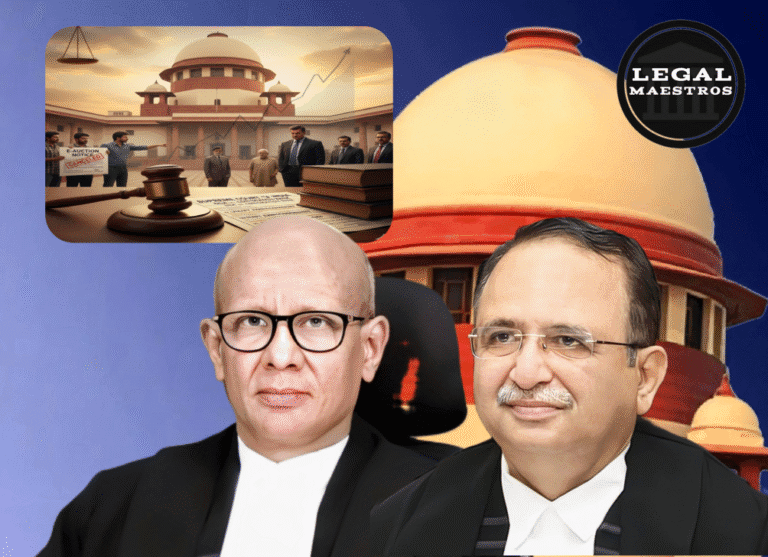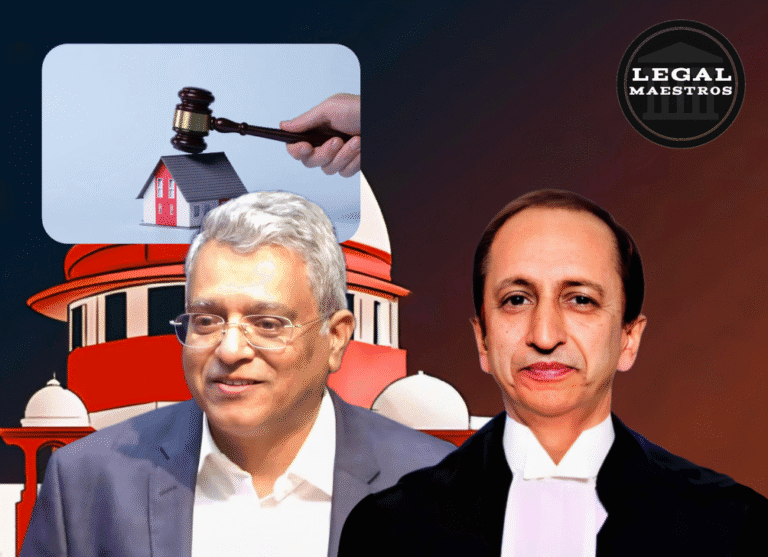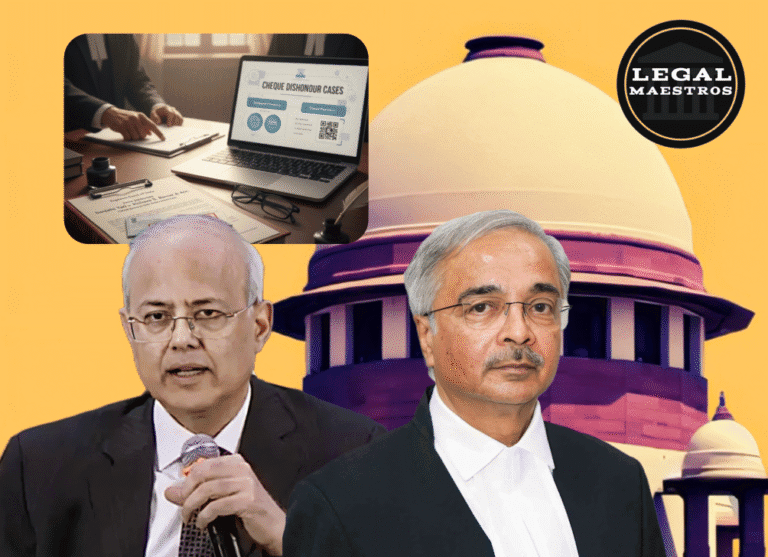
The effect of this aspect on the Dowry case is as recent as the Supreme Court of India in a landmark decision tackled this element of the widening scope of the tendency of entrapment of members of the family of the husband on the generalised and vague allegation, having later grown with very little content in this regard. This ruling was made in a criminal appeal number 2570 of 2018 (rising out of SLP (crl.) on the 23rd of April 2025. No. 2570 of 2018, it can be of great assistance to the courts in addressing this type of complaint especially when the alleged family members are not residing with the complainant and her husband. This case has the title Muppidi Lakshmi Narayana Reddy & Ors. Versus The State of Andhra Pradesh and another case highlight issues of judiciary which is about misuse of legal provisions i.e. Section 498A of the Indian Penal Code (IPC) and Section 4 of the Dowry Prohibition Act, 1961.
Facts and Background of the Case
The case is an appeal which emanated as a petition by the appellants under Cr.P.C. Section 482 for the quashing of proceedings in C.C. No. 359 of 2016 was dismissed by the High Court. First appellant (A4) is the sister-in-law of de-facto complainant (respondent no. 2), second appellant (A5) is his husband and third appellant (A6), who is the father-in-law of A4. The de-facto complainant got married to Challa Poornananda Reddy (A1), his husband at Guntur on May 24, 2014.
The de facto complainant left her marital house soon after the marriage and moved back to the house of her parents in Guntur. The troubles still persisted even though there was an effort at reconciliation and a Notice of Law was issued and thereafter the husband filed a petition seeking restitution of conjugal rights scheduled for February 18, 2015. On April 2, 2015, a compromise was arrived at, and the husband withdrew the restitution of the case of conjugal rights and the de-facto complainant withdrew a police complaint that she had filed against the husband on February 13, 2016, when the restitution proceedings were pending.
But the de facto complainant later flew out to the USA without saying anything to her husband or his family, and the matter continued. The husband followed it up by filing a dissolution of marriage on June 21, 2016. To this, yet another police complaint, numbered FIR No. 79 of 2016, was then filed by the de-facto complainant against six persons, including the present appellants.
The appellants argued that they had no role in the matrimonial conflict between husband and wife or the immediate family of the husband They said that they were residing in Hyderabad and the de-facto complainant was living in Guntur at her marital home. It was also observed that the father of the de-facto complainant had already filed a juicy offense under Section 66C of the Information Technology Act against her husband (A1) and it was still pending in CC No. 775 of 2016 The appellants also brought to light their occupations as A4 is a housewife, A5 is a Software Engineer and A6 is a Central Government employee, all of whom being located in Hyderabad and once again expressed that they have no relationship or involvement in the dispute between the couple.
The High Court is assumed to have refused to quash the proceedings, on the reasoning that the accusations against the appellants required trial, and could not be disbelieved at that point.
Analysis of Allegations by the Supreme Court
Looking at the record, the Supreme Court noted that the charges against the appellants were omnibus and general. Although the complaint accused the appellants of visiting Guntur even though they stayed in Hyderabad to incite the husband (A1) and the parents to get a dowry there, it failed to mention the exact dates of such visits. The first allegation refers to reimbursement of Rs. 5,00,000/- by appellant No. 1 (A4), with subsequent provoking that the husband could easily have gotten Rs. 10 crores in dowry had he gone and married a different woman? Most importantly, the appellants did not appear to have been subjected to any form of physical torture. The charges narrowed down to taunting and asserting that they were in high social status and were influential in the political arena and they influenced the husband and his parents (acused no. 1 to accuse no. 3) into pressuring the de-facto complainant further to pay them some more dowry.
The Court specially stressed the fact that there had been no denial by the appellants that they were living in Hyderabad, but the de-facto complainant was living in her marital house at Guntur. The fact that they did not have a particular date when they allegedly visited Guntur to seek dowry was also important.
Misuse of Dowry Laws and Precedents in Judicial Cases
Taking into consideration its own earlier verdicts, the Supreme Court pointed to the fact that there was increasing concern that the act of the husband implicated his relations in the dowry case indiscriminately. It cited the case of Geeta Mehrotra & Anr. V State of Uttar Pradesh & Anr. Where it was stated that the court had frowned upon the tendency to include relatives as participants in crimes under Section 498A of the IPC and Section 4 of the Dowry Prohibition Act. In Geeta Mehrotra, the bald allegations against his sister-in-law especially one who did not live with the husband of the complainant were not sufficiently met so that they gave any legal premises in cognizance. The Court was back then of the opinion that the sister-in-law should never have been put through the ordeal of a trial by the High Court.
The practice of involving the relatives of the husband in matters relating to dowry was also reiterated and condemned in a recent case namely, Dara Lakshmi Narayana & Ors. Vs. State of Telangana & Anr. In that regard, it was found that there was no relationship between appellants 2-6 and the case and that they were consequently brought into the crime net without any rhyme or reason. There had also been no substantial and specific holdings against them in the FIR in Dara Lakshmi Narayana. It just indicated that they were inciting him (husband) to demand extra dowry. One of the reasons was the fact that these relatives did not live in the same house as the couple; they lived in various cities.
The Dara Lakshmi Narayana case held that any reference to family members in a criminal case that was based on a matrimonial clash must not be allowed to fester; rather, it should be nipped in the bud unless there were explicit allegations. It also recognised how they are in the habit of involving other family members when there is a marriage conflict and warned about how they are quick to level allegations and fail to give any factual evidence. It is argued that courts have to be careful enough not to misuse the provisions of the law or harass innocent family members. The Court laid stress on the fact that Section 498A IPC, which deals with curbing cruelty towards a woman, has had an incrementally increasing propensity of being used as a weapon of personal revenge as well as to flex the muscles in matrimonial disputes.
The case of G.V. Rao vs. L.H.V. Prasad also cited by the Court in Dara Lakshmi Narayana, laments the eruption of matrimonial issues and how elders who could have resolved the problem became parties to the allegation. Also, the case of Preeti Gupta vs. State of Jharkhand was referred to, where the Court expressed an intention to be very careful and cautious in the handling of such complaints, by keeping in view pragmatic realities especially when the allegations are against close relatives who live in different cities or visit him/her very infrequently. It then proceeded to hold that the said FIR was registered by the applicants with based intentions to accomplish their personal goals and grievances and as such was to be quashed in view of Section 482 CrPC, category (7) of the said illustrative parameters as done in Bhajan Lal.
Proceedings Quash
The use of the above principles in the context of the present case, as it became an admitted fact in the case before the Supreme Court that the appellants lived in Hyderabad whereas the de-facto complainant lives at her marital home in Guntur. And the charges against the appellants themselves were mere “omnibus” in that besides demanding dowry, they had used their influence on the husband and his parents (accused no nos. 1 to 3).
Based on its earlier findings in the Geeta Mehrotra and Dara Lakshmi Narayana cases, the Supreme Court decided that the criminal trial of the appellants was worthy of being quashed. The appeal was therefore admitted and the criminal case number 359 of 2016 against the appellants was quashed. The judgment is a timely reminder to the courts to carefully examine accusations in dowry related cases even more so when they involve the relatives of the husband who are living at a different location to avoid the misuse of the law and serve justice to everyone. It contributes to the requirement of concrete and firm evidence instead of general defamation to carry out criminal prosecution.




1 thought on “Dowry Harassment Cases: A Scrutiny of Allegations Against Husband’s Relatives by justice A. amanullah”